Big movements in the moving and handling sector
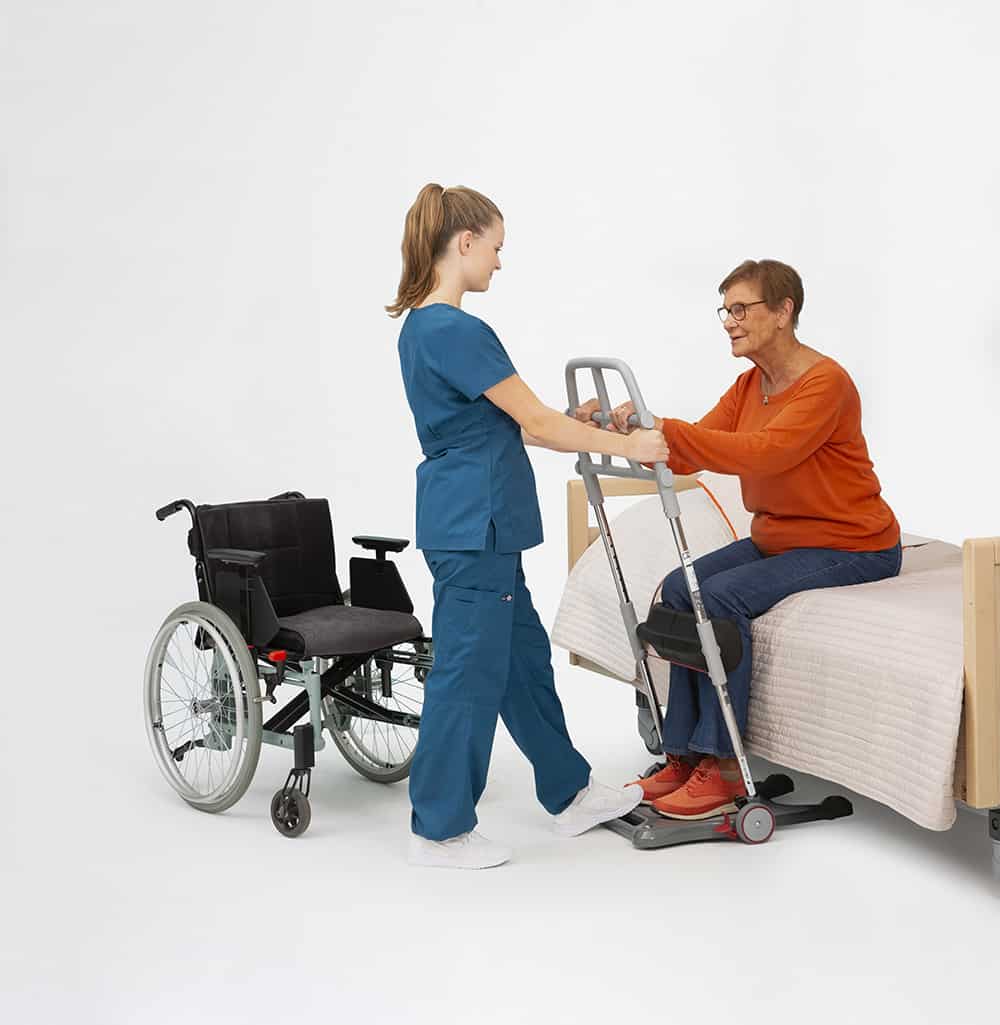
Towards the end of 2018, the moving and handling sector saw a flurry of activity, with new players such as Herida Moving and Handling, led by ex-Mackworth boss Neil Smith, moving into the sector and established players such as Prism Medical UK – the company that acquired Mackworth – and Mangar Health undergoing lucrative acquisitions. With a market predicted to reach £20.21billion globally by 2025, THIIS has examined what it is driving such activity, what effect Brexit could have on export success and what the future holds for the market’s players.
Global market growth drivers
A recent market report by Data Bridge Market Research, the Global Patient Handling Equipment Market, predicted that the market is expected to reach £20.21billion by 2025, up from £9.1billion in 2017, growing at a compound annual growth rate of 10.5 percent during the forecast period of 2018 to 2025.
One of the key elements driving this substantial growth is widely accepted to be the world’s ageing population, with the World Health Organisation estimating from 2015 to 2050, the proportion of the world’s population of over 60s will nearly double from 12 percent to 22 percent, whilst by next year, the number of people aged 60 and older will outnumber children younger than five years old.
Discussing the global expansion, Neil Smith, Managing Director of the Herida Group, said: “There are lots of reported reasons but the main one is that we are getting older and living longer, with better medical facilities and of course, better products available to help patients and carers. It’s really that simple.”
With an increasingly ageing population also comes increasing medical requirements related to this demographic, with the World Health Organisation stating all countries will face major challenges to ensure health and social systems are ready to make the most of this demographic shift.
Andrew King, National Sales Manager for Etac UK, points out that as well as an older population increasing the numbers of individuals requiring care within the community and healthcare establishments, greater awareness of the need for health and safety for both for service users and caregivers is also playing a significant role in the market growth.
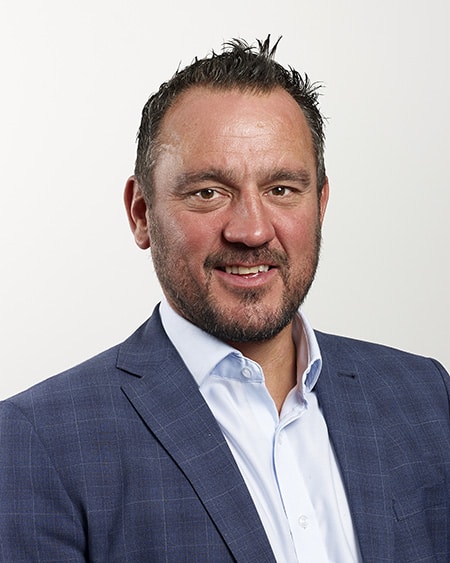
It is a point supported by Mangar Health’s CEO Simon Claridge, highlighting that whilst some markets such as the UK is more developed with its understanding of the importance of moving and handling, other countries will have to invest and adapt swiftly to meet the needs of an older population.
“Our experience suggests that although the UK has recognised the physical and economic cost of poor manual handling techniques for many years, putting in place the infrastructure required to protect patients and workers, globally has been much slower,” said Simon.
“In the US alone, musculoskeletal injury costs employers £2 billion annually and securing the right equipment is part of the solution to this worldwide problem.”
Neil also highlights the growing awareness of the expense relating to either patient or caregiver moving and handling injuries, driving care providers across the world to invest in the right equipment and training.
“Costs associated with falls are also high profile today and with most things, it’s cheaper to prevent the cause and litigation by investing in good moving and handling equipment and practices.”
Growth closer to home
With the global market set to surge significantly over the coming years, the UK market, identified as being more mature with established players and infrastructure in place, is also still providing attractive growth opportunities for equipment suppliers.
Mangar Health, the Herida Group and Etac R82 all confirmed to THIIS that along with stability in the UK market, there are specific growth areas the organisations are focussing on.
“Although the UK has recognised the physical and economic cost of poor manual handling techniques for many years, putting in place the infrastructure required to protect patients and workers, globally has been much slower” Simon Claridge
According to Neil Smith, relatively new market entrant the Herida Group is enjoying domestic success in both public and trade sectors at the expense of its competitors.
“Herida Group sells over half of its business portfolio to Local Authority and public sector and this market is steady but our UK growth is from other competitors who held this share,” he noted.
“Our dealers are also growing with us. These partners serve LTC and most high calibre distributors in the nursing and residential sector are showing growth, some significantly, again for the reasons mentioned before.”
For Etac R82, Andrew explains that budget constraints and service pressures in the UK are driving demand for products helping to keep patients at home.
“Etac R82 continues to grow as a business through demand for its quality products which deliver greater safety in care homes, hospitals and domestic situations,” he told THIIS.
“Product orders are particularly strong from those assisting people in their own homes – helping to reduce budget pressures on hospitals and care facilities.”
It is these growing budgetary pressures identified by Andrew that Neil says is actually providing the Herida Group and other smaller players in the market the opportunity to gain valuable market share from larger, more established players.
“The NHS is also skint,” said Neil.
“This is a challenge for bigger brands but in honesty, a great opportunity for lower profile brands or relatively new entrants at the moment. We have really capitalised on this area.”
Recently acquired Mangar Health is also seeing continued success in the UK, largely driven by specific, targeted marketing activity, according to CEO Simon.
“The Mangar lifting cushions, Camel and ELK, are recognised by Ambulance Trusts in the UK as the best way to lift fallen people and initiatives working with CCGs and Health Boards has driven increased demand from the care home market in particular,” he commented.
One of the most important trends in the UK moving and handling arena identified by all three manufacturers influencing product demand and development is the need for products that can be operated by a single healthcare professional.
Single-handed growth
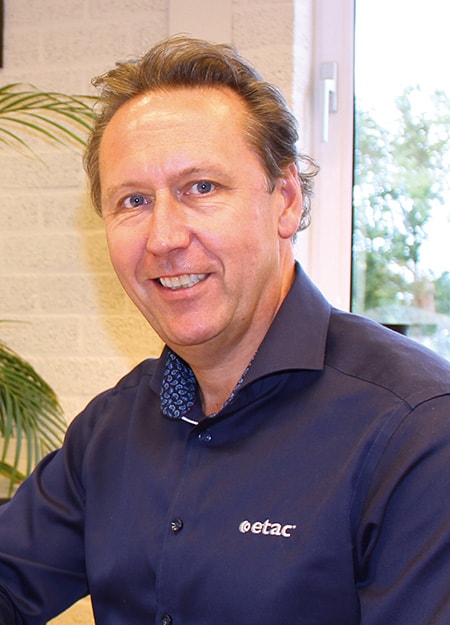
Etac R82’s Andrew King told THIIS that the requirement for single-handed care is being propelled by a lack of funding which, despite having seen some increases in certain areas, is still not enough to meet increased demand.
“This is resulting in even greater pressure on care and equipment budgets and hence single-handed care is essential where possible,” he commented.
It is a claim echoed by Mangar’s Simon Claridge: “In the UK, single-handed care is always a priority and this will continue to be the case as budgets are cut and staff resource is depleted.”
One of the primary concerns in the area is combining meeting the need for single-handed care for healthcare providers to achieve greater efficiencies whilst simultaneously minimising the risk of injury to healthcare professionals and patients.
“Every day in the UK, 1000 residents living in care homes will fall,” explains Simon.
“Ensuring residents are lifted safely and in a dignified way is a daily challenge for healthcare professionals and one that over the years has contributed to musculoskeletal injuries for many working in the sector.”
These three demands have largely influenced the product and design innovation in moving and handling equipment, however, Neil says it is vital for manufacturers to offer more than just high-quality aids and to also deliver greater training resources for healthcare professionals.
“Single-handed care and education are big,” he contended.
“Reducing dangers by education, marking, branding or video training is all part of today’s modern and safe product supply. Herida is all over this. Don’t just sell it in a box with a compliance paragraph of user manual. People can die if you use a sling in the wrong way!”
This desire for lifting, moving and handling equipment has led to some UK retailers enjoying lucrative sales by introducing new moving and handling innovations to the public sector.
Over 2018, Yorkshire Care Equipment enjoyed substantial success selling Danish manufacturer LiftUp’s Raizer emergency lifting device to emergency services across the North and Midlands.
Tristan Hulbert, Managing Director of Yorkshire Care, said: “Falls in the UK is a huge issue, so to be supplying a product that could help relieve pressure on the healthcare service and other healthcare professionals is a huge thing for us.”
Capitalising on export opportunities
With significant growth prospects abroad, moving and handling equipment manufacturers are focusing particular attention on their export activities in order to reap the lucrative benefits of providing for a quickly expanding ageing global demographic.
Mangar’s CEO discussed with THIIS some of the regions and markets the company is enjoying export success.
“Demand from overseas is growing with recent orders for the Camel and ELK lifting cushions from Australian and Canadian ambulance services,” said Simon.
“We are also beginning to work with Veteran Associations in the USA, where the Camel lifting cushion has been identified as a product which will help veterans to return home faster after a stay in a veteran facility.”
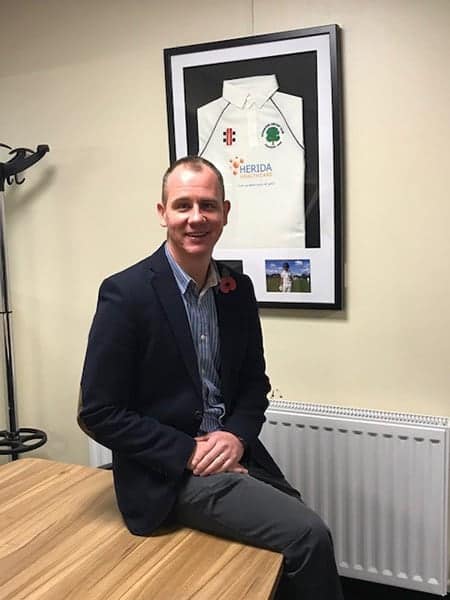
New kid on the moving and handling block Herida is also busy building its international network says Neil, taking full advantage of the weakened pound and the positive reputation associated with British manufacturing.
“Our export percentage is stable but physical revenue is up. When the pound is cheap, people want to buy British quality,” the entrepreneur said.
“Australia has been great for us, as well as some European growth, despite the uncertainty of Brexit. We’ve even got interest from the Far East. Partners in Dubai, Oman and the wider Middle East have recently signed exclusively with Herida Group as well.”
In spite of the positive outcome on the horizon for moving and handling providers, one possible grey cloud potentially looming over the substantial growth prospects of British manufacturers is Brexit.
Could Brexit throw a spanner in the works?
With ‘uncertainty’ seemingly the word to kick-start 2019 and Government departments urging healthcare providers to make preparations for a no-deal exit from the European Union in March, THIIS questioned manufacturers about what they could see as the potential consequences to the market.
Having been bought out by a French manufacturer, Mangar’s Simon explained what effect Brexit could have on the Welsh-based manufacturer.
“We are fortunate that we do not rely on manufacturing or componentry from any other European country and so believe ‘piling up stock’ will not be necessary for us,” he elaborated.
“Other than that, it is impossible to know what impact Brexit may have on us at this time.
“We do believe however that Brexit may well cause greater staffing shortage in social care settings, leading to pressure on the industry for greater equipment innovation. We believe both Mangar and our peers in the industry are well placed to innovate and new products will be the way companies will grow and succeed in the future.”
Undaunted by the Brexit impact of potential supply chain disruptions, Mangar is currently looking ahead at export potential into Europe, with the recent acquisition opening profitable doors for the company.
“This is a challenge for bigger brands but in honesty, a great opportunity for lower profile brands or relatively new entrants at the moment” Neil Smith
“Our acquisition by the Winncare Group means the Camel and ELK lifting cushions are being introduced to French and European care home groups and we expect to see significant growth here in 2019.”
Stressing that Herida has now planned “methodically”, Neil emphasises that due to the level of uncertainty, all the organisation can do is to try to anticipate and plan accordingly for the variety of possible Brexit scenarios.
“The pound’s strength against the dollar and euro will continue to be up and down like a bride’s nightie until early April and possibly beyond, with each side blaming each other for this process but it will settle longer term,” he predicted.
“In the interim, we hope to continue as we have set off. I will be glad when it’s all over, just like 99 percent of the UK population.
“It is also true to say that a small proportion of Herida’ supply chain has been linked to goods imported from Europe. However, over the last six to 12 months, where possible, we have prepared a supply chain contingency that has included sourcing and testing materials to the same standards of which our customers are experiencing from other continents.
“This has been no easy task, but we are pleased to identify that we do now have alternative measures in place to react to most eventualities (outside of potential export tariffs). We’ve also had support from EU suppliers who recognise their part to play.”
Overcoming export challenges
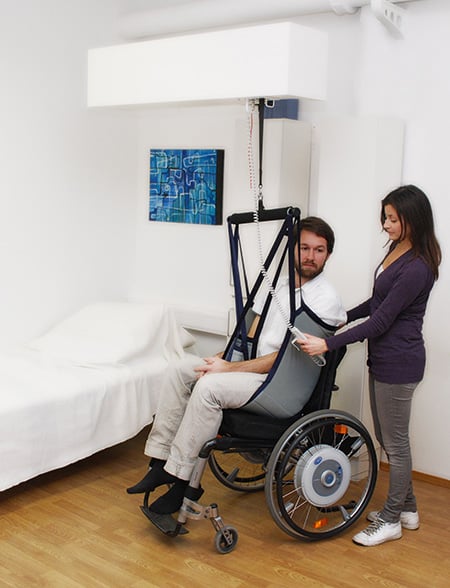 Whilst Brexit has often dominated conversations relating to export activity recently, Mangar’s Simon Claridge and Herida’s Neil Smith identified a number of unrelated but equally, if not more, important factors companies have to consider when exporting in the moving and handling market.
Whilst Brexit has often dominated conversations relating to export activity recently, Mangar’s Simon Claridge and Herida’s Neil Smith identified a number of unrelated but equally, if not more, important factors companies have to consider when exporting in the moving and handling market.
According to Simon, one of the key issues relates to understanding the healthcare markets, systems and infrastructures of other nations, which can differ wildly to those in the UK.
“Healthcare markets in Europe and beyond are far more fragmented than in the UK,” he observed.
“In France for example, there are hundreds of ambulance organisations and most are privately owned. In comparison, in the UK there are just 14 NHS Ambulance Trusts to work with. The most important part of exporting is finding distributors who have the right contacts and networks within the health sectors we need to address and then supporting them to market our products effectively.”
The importance of finding the right distributors is shared by Neil, underlining that finding the right partners is no easy or cheap task, particularly for a smaller company.
“It’s all about research and knowing the customer or having prior links, ‘mates in the trade’,” he said.
“If you don’t already have them, you must make the effort to find them. Travel and attend trade shows like Medica and Arab Health but still, it needs vast research and pre-booked meetings before you go or it’s a waste of time.
“Each market is different. Travel is expected and lots of it. I spent my six weeks summer holiday travelling to see export customers and suppliers. Don’t expect to sell at the same price or indeed same product specification to every single market. It’s just not feasible. Then there’s the big one – cash to fund growth and travel!”
What does the future hold for moving and handling players?
With a potential global market worth an estimated £20.21billion by the next six years, it is easy to understand why more companies, both inside and outside the moving and handling market, are investing the time and money to build international connections and gain a foothold in the global market.
At the end of 2018, LDC, the private equity firm behind moving and handling manufacturer Prism Medical UK, sold the moving and handling manufacturer to Limerston Capital, after reports revenues of £40million.
Additionally, Mangar Health was acquired by French medical device manufacturer the Winncare Group towards the back end of last year, citing Mangar’s relationships with UK care providers, Local Authorities, ambulance services and care homes as a vital purchase factor.
“This is resulting in even greater pressure on care and equipment budgets and hence single-handed care is essential where possible” Andrew King
Domestically, as the market becomes more competitive and budgets become tighter to meet growing needs, Neil believes more merger and acquisition activity will be inevitable in the future.
“More controlled or lesser budgets in the public sector will always test the bigger companies, markets, therefore, need to be cross bet. Consolidation of companies will naturally occur as the market becomes more challenging,” he forecasted.
In the face of some potential bumps in the road, with Brexit uncertainty hanging as an unknown variable, the outlook in the moving and handling sector looks largely positive for some of its key players, especially for companies providing innovative solutions to help relieve financially strained healthcare providers.
For retailers and distributors, this means providing equipment to cash strapped healthcare providers focusing on not only providing high-quality care but also cash saving opportunities.
“Our company mission continues to focus on providing quality products and education that deliver tangible ROI,” finished Etac R82’s Andrew King.
“Choosing Etac R82 equipment represents sound economic sense with long term cost savings versus repeated purchasing of cheaper, inferior products. This investment helps Local Authorities and the NHS strive to meet ever increasing demands in the future.”
Mangar’s Simon Claridge shares a similarly positive outlook, reinforcing that 2018 had seen growth of more than 15 percent and its new acquisition, expanding its product offering further domestically.
“We have great opportunities with export in Europe, Australasia and the USA, building our presence in emergency services sectors globally with our unique and innovative lifting cushions,” he concluded.
“In the UK, we are looking forward to building our business in care homes but also introducing Winncare products to our Local Authority and hospital customers.”
As the newest market entrant, Neil ends by pointing out that regardless of what is to come, the organisation is in control of its own fate.
“Our competitors do not have all our skills under one roof and investments towards manufacturing equipment in-house which allows us to ride the pending storms and to come out of them stronger at the other side we hope,” he stated.
“Ultimately, we oversee our own destiny. That is a big thing, regardless of what’s coming!”


